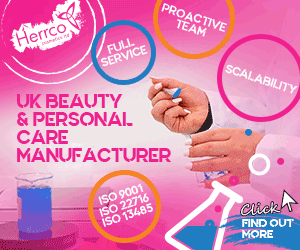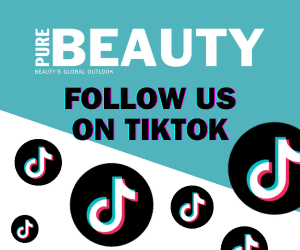More than 35 of the cosmetics industry’s biggest names have banded together to advance animal-free testing globally.
The new International Collaboration on Cosmetics Safety (ICCS) is made up of cosmetics manufacturers, suppliers and industry associations, as well as animal protection organisations.
ICCS said its members, including L’Oréal, LVMH and Procter & Gamble (P&G), will fund rigorous, scientific evaluation of new animal-free safety assessment approaches, sharing the results with cosmetic and chemical regulators.
It also intends to fund education and training activities to help build confidence in animal-free safety assessment approaches.
The collaboration’s core ambitions are to work with existing organisations to:
- Evaluate and further develop animal-free safety assessment approaches to demonstrate their scientific validity for human health and environmental protection;
- Share the results of these activities with regulators to inform ongoing regulatory acceptance discussions around the world; and
- Provide education and training materials to accelerate widespread adoption of the latest animal-free safety science.
“We have seen significant scientific advancements in the development, evaluation and use of animal-free methods for safety assessment in recent decades,” said Erin Hill, President and CEO of ICCS, and co-founder of ICCS member company IIVS (the Institute for In Vitro Sciences).
“ICCS brings together scientists from leading organisations around the world to continue this momentum and work toward our shared ambition for a future where no ingredients or products are tested on animals.
“ICCS is a global collaboration focused on animal-free safety science for cosmetics and ingredients, which currently face unique challenges and inconsistent global regulations.
“I am honoured to lead the organisation at such an important time.”
John Chave, Acting Board Chair of ICCS and Director General of Cosmetics Europe, added: “The safety of the cosmetics and personal care products that consumers use and trust every day is our top priority.
“Thanks to evolved scientific methods, we can ensure cosmetics and personal care product safety assessments are performed both rigorously and ethically, without animal testing.
“There is more to be done as science progresses, and multiple research projects are already underway at ICCS to further advance animal-free science methods.”
The full list of ICCS members is: BASF, Beiersdorf, CASIC (the Latin American Cosmetics, Toiletry and Perfumery Association), Chanel, Colgate-Palmolive, Cosmetics Europe, Croda, Cruelty Free International, Edgewell Personal Care, EFfCI (the European Federation for Cosmetic Ingredients), Evonik, Fragrance Creators Association, Haleon, Henkel, Humane Society International, IFF, IFRA (the International Fragrance Association), IIVS, Innospec, JCIA (the Japan Cosmetic Industry Association), Johnson & Johnson, Kao, L’Oréal, LVMH, Oriflame, PETA Science Consortium International, PCPC (Personal Care Products Council), Physicians Committee for Responsible Medicine, P&G, Reckitt, RIFM (Research Institute for Fragrance Materials), Shiseido, Takasago, Unilever and Wella Company.
Animal alternatives and cosmetics
While the cosmetics and personal care industry has significantly contributed to replacing animal methods to address skin irritation, genetic toxicology, eye irritation and skin sensitisation via in silico and in vitro methodologies, many policies and regulations still require animal test data.
ICCS said it aims to close this gap by understanding regulatory needs and supplying sound scientific solutions based on innovative animal-free approaches.
It comes amid concern from animal welfare NGOs over instances in the European Union (EU) where animal tests have, in rare cases, been mandated for cosmetic ingredients to meet the requirements of the EU’s chemicals regulation REACH, which exists to ensure human health in the workplace and the environment.
The EU’s approach to cosmetics had been widely hailed as the gold standard for moving away from animal tests.
In the EU, a ban on the testing of finished cosmetic products has been in place since September 2004.
A ban on animal testing of cosmetic ingredients in the EU to meet the requirements of the EU Cosmetics Regulation came into effect in March 2009.
A marketing ban, to ensure that ingredients could not be tested anywhere in the world to meet the requirements of the EU Cosmetics Regulation, came into effect in March 2013.
A European Citizens’ Initiative (ECI) to strengthen and protect the EU’s ban on cosmetics animal testing announced last month that it had achieved its goal of over one million validated signatures.








